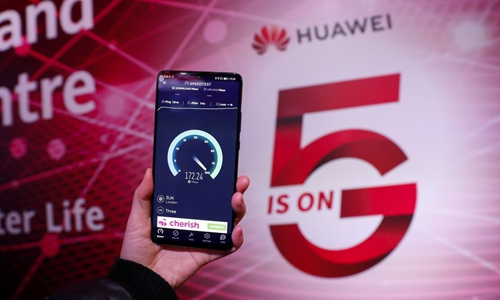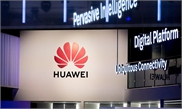
A staff member tests the speed with a Huawei 5G mobile phone at Huawei 5G Innovation and Experience Center in London, Britain, on January 28. Photo: Xinhua
China's telecom giant Huawei on Friday slammed the US Secure and Trusted Communications Act, which prohibits the company from supplying telecommunications equipment or services to US carriers, saying the law will deny consumers' competitive edge and cost taxpayers' money.The "Rip and Replace law" is simply an "unrealistic attempt to fix what isn't broken," a Huawei spokesperson told the Global Times on Friday.
"This legislation remains considerably underfunded, will take longer than anticipated to fulfill and will put at risk some of Huawei's customers operating in the most underserved areas," the spokesperson said.
The law requires US telecoms, particularly small and rural operators, to rip out and replace any "untrusted suppliers" which may pose a threat to US national security.
But the US officials, claiming Huawei has secret access to carrier backdoors, are reluctant to provide evidences that the Chinese government has used Huawei equipment for surveillance.
"The US has lost its monopoly position due to the development of 5G technology. It is becoming increasingly insecure and can only maintain their advantage by suppressing overseas companies," Xiang Ligang, a Beijing-based independent telecommunications expert, told the Global Times on Friday.
"This is another manifestation of American hegemony."
The Huawei spokesperson said the law "does not address the most pressing issues of network security and completely ignores the alternative proposals put forth by rural network operators."
"It simply reduces the ability of these broadband providers to deliver connectivity, which will hurt local consumers and businesses and could drive these operators out of business," the spokesperson said.
"A more holistic approach to securing network equipment and supply chains can benefit all US networks at a fraction of the cost outlined in the legislation."
Xiang believes the law will have little impact on Huawei.
"What the US did is unlikely to change the internationalization process of Huawei, as its wide acceptance in Europe has proved that its technology prevails," Xiang noted.
"As Huawei's business in the US remains small, the law will have little impact on Huawei."



